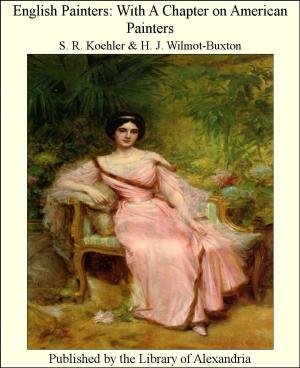| Author: | Anne Douglas Sedgwick | ISBN: | 9781465538321 |
| Publisher: | Library of Alexandria | Publication: | March 8, 2015 |
| Imprint: | Language: | English |
| Author: | Anne Douglas Sedgwick |
| ISBN: | 9781465538321 |
| Publisher: | Library of Alexandria |
| Publication: | March 8, 2015 |
| Imprint: | |
| Language: | English |
Three people were sitting in a small drawing-room, the windows of which looked out upon a wintry Boston street. It was a room rather empty and undecorated, but the idea of austerity was banished by a temperature so nearly tropical. There were rows of books on white shelves, a pale Donatello cast on the wall, and two fine bronze vases filled with roses on the mantelpiece. Over the roses hung a portrait in oils, very sleek and very accurate, of a commanding old gentleman in uniform, painted by a well-known German painter, and all about the room were photographs of young women, most of them young mOthers, with smooth heads and earnest faces, holding babies. Outside, the snow was heaped high along the pavements and thickly ridged the roofs and lintels. After the blizzard the sun was shining and all the white glittered. The national colors, to a patriotic imagination, were pleasingly represented by the red, white and blue of the brick houses, the snow, and the vivid sky above. The three people who talked, with many intimate pauses of silence, were all Bostonians, though of widely different types. The hostess, sitting in an easy chair and engaged with some sewing, was a girl of about twenty-six. She wore a brown skirt of an ugly cut and shade and a white silk shirt, adorned with a high linen collar, a brown tie and an old-fashioned gold watch-chain. Her forehead was too large, her nose too short; but her lips were full and pleasant and when she smiled she showed charming teeth. The black-rimmed glasses she wore emphasized the clearness and candor of her eyes. Her thick, fair hair was firmly fastened in a group of knobs down the back of her head. There was an element of the grotesque in her appearance and in her careful, clumsy movements, yet, with it, a quality almost graceful, that suggested homely and wholesome analogies,—freshly-baked bread; fair, sweet linen; the safety and content of evening firesides. This was Mary Colton.
Three people were sitting in a small drawing-room, the windows of which looked out upon a wintry Boston street. It was a room rather empty and undecorated, but the idea of austerity was banished by a temperature so nearly tropical. There were rows of books on white shelves, a pale Donatello cast on the wall, and two fine bronze vases filled with roses on the mantelpiece. Over the roses hung a portrait in oils, very sleek and very accurate, of a commanding old gentleman in uniform, painted by a well-known German painter, and all about the room were photographs of young women, most of them young mOthers, with smooth heads and earnest faces, holding babies. Outside, the snow was heaped high along the pavements and thickly ridged the roofs and lintels. After the blizzard the sun was shining and all the white glittered. The national colors, to a patriotic imagination, were pleasingly represented by the red, white and blue of the brick houses, the snow, and the vivid sky above. The three people who talked, with many intimate pauses of silence, were all Bostonians, though of widely different types. The hostess, sitting in an easy chair and engaged with some sewing, was a girl of about twenty-six. She wore a brown skirt of an ugly cut and shade and a white silk shirt, adorned with a high linen collar, a brown tie and an old-fashioned gold watch-chain. Her forehead was too large, her nose too short; but her lips were full and pleasant and when she smiled she showed charming teeth. The black-rimmed glasses she wore emphasized the clearness and candor of her eyes. Her thick, fair hair was firmly fastened in a group of knobs down the back of her head. There was an element of the grotesque in her appearance and in her careful, clumsy movements, yet, with it, a quality almost graceful, that suggested homely and wholesome analogies,—freshly-baked bread; fair, sweet linen; the safety and content of evening firesides. This was Mary Colton.















